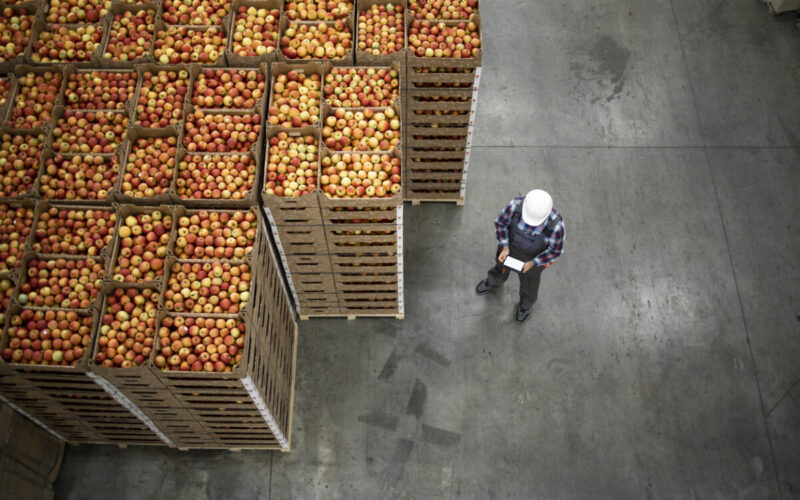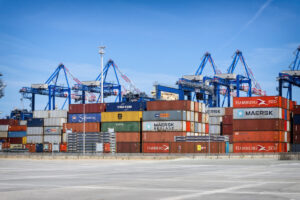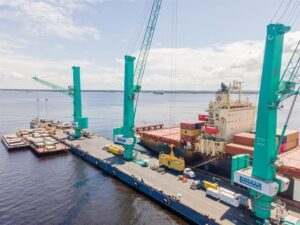North American Food & Beverage (F&B) shipments have lagged behind Consumer Packaged Goods (CPG) shipments, experiencing a decrease of 2 per cent year-over-year (YoY) and 1.5 per cent quarter-over-quarter (QoQ) as of 21 July.
The latest data from FourKites shows that North American beverage shipments peaked in August 2022, with the 28-day average over-the-road shipping (OTR) volume increasing by 14 per cent above the total daily average for the same year.
Meanwhile, CPG shipments have practically maintained the same levels as last year, with just a 0.5 per cent YoY reduction and a 3.2 per cent QoQ decline in Q2.
All other industries examined by FourKites have grown by 2.5 per cent YoY and are down 1 per cent QoQ.
READ: FourKites acquires Haven and rolls out Dynamic Ocean solution
FourKites has seen a strong performance YoY within the meat, produce, and dairy segment, with the 28-day average over-the-road (OTR) shipment volume in North America up 6 per cent YoY.
Alcoholic and bottled beverages have shown weaker performance compared to the previous year, with the 28-day average shipment volume down 8 per cent YoY.
Based on a 28-day average as of 21 July, the meat and packaged foods industries had the largest percentage of delayed OTR shipments, at 26 per cent and 23 per cent, respectively.
READ: FourKites, Gravity join forces for real-time supply chain visibility
Meanwhile, the 28-day average percentage of shipments delayed for drinks (bottled and alcoholic beverages), food distribution/retail, and produce and dairy is 22 per cent.
Glenn Koepke, GM of Network Collaboration at FourKites, said: “The freight market has hit rock bottom which has benefitted food and beverage shippers to save freight and logistics costs, hit higher service levels, reduce detention and ultimately deliver goods even if initial plans change.
“In 2024, we anticipate a slightly more competitive freight market but it will still benefit shippers so this will mean freight costs will rise 5-10 per cent but service levels will remain strong and capacity will be readily available.”
In the current business landscape, observed Koepke, companies are navigating soft demand, striving to match the previous year’s sales while contending with underutilised truck space. The economic slowdown has led consumers to pivot towards value-driven purchases over premium goods.
Anticipated for the upcoming year, the F&B industry is poised to witness several notable trends. Collaborative temperature tracking is increasingly being adopted, effectively enhancing the efficiency of perishable shipping procedures.
READ: FourKites reveals promising trends in US-Mexico trade
The integration of Artificial Intelligence (AI) and Machine Learning (ML) is set to play broader roles across various supply chain facets, reports FourKites, spanning from planning to enhancing consumer interactions.
Moreover, the ascent of Direct-to-Consumer (DTC) and Fulfillment by Amazon (FBA) approaches is becoming more pronounced as manufacturers embrace digital distribution strategies.
Internal supply chain control towers are also emerging, according to Koepke, shifting focus from transactional ERP execution to real-time visibility and AI-driven insights. Presently, the freight market’s decline benefits F&B shippers, expecting a modest cost rise in 2024 while upholding service quality and capacity.
Read the latest Technical Paper from FourKites on how to optimise your operations to reduce waste.










